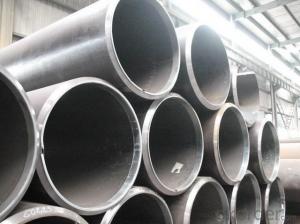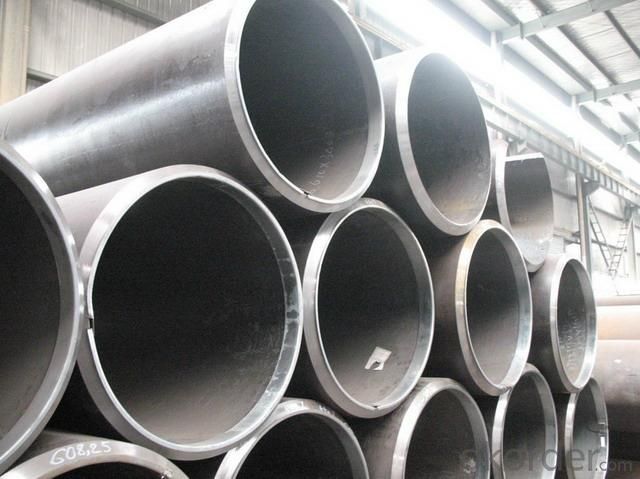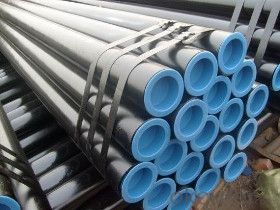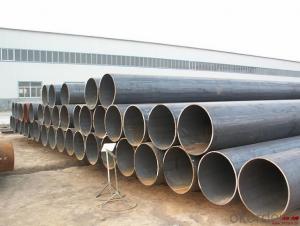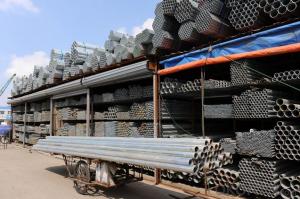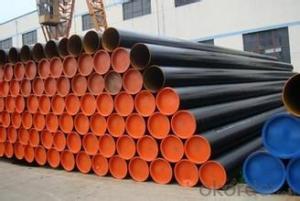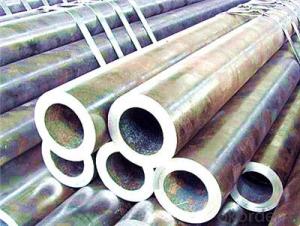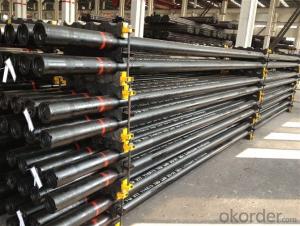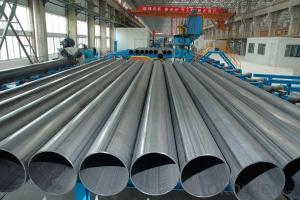Steel Pipe With High Quality And Best Price
- Loading Port:
- Tianjin
- Payment Terms:
- TT OR LC
- Min Order Qty:
- 40 m.t.
- Supply Capability:
- 500 m.t./month
OKorder Service Pledge
OKorder Financial Service
You Might Also Like
PRODUCT DETAILS
1.Structure of Seamless Steel Pipe Description:
A large amount of Seamless Steel Pipes is offered to the clients at cost effective rates. These pipes are extremely durable, resistant to corrosion and have high tensile strength. Our pipes are used in nuclear plants, power plants, refineries and construction industry across the country. Furthermore, we are capable of providing these seamless pipes to the clients in bulk quantity.
2.Main Features of the Steel Pipe:
• High manufacturing accuracy
• High strength
• Small inertia resistance
• Strong heat dissipation ability
• Good visual effect
•Reasonable price
3.Packaging & Delivery:
| Packaging Details: | Seaworthy packages, bundles wrapped with strong steel strip |
| Delivery Detail: | 15-30 days after received 30% TT |
4.Seamless Steel Pipe Specification:
| Standard: | GB, DIN, ASTM,ASME, ASTM A106-2006, ASTM A53-2007 |
| Grade: | 10#,20#, 45#, 16Mn |
Thickness: | 8 - 33 mm |
| Section Shape: | Round |
| Outer Diameter: | 133 - 219 mm |
| Place of Origin: | Shandong, China (Mainland) |
| Secondary Or Not: | Non-secondary |
| Application: | Hydraulic Pipe |
| Technique: | Cold Drawn |
| Certification: | API |
| Surface Treatment: | factory state or painted black |
| Special Pipe: | API Pipe |
| Alloy Or Not: | Non-alloy |
| Length: | 5-12M |
| Outer Diameter: | 21.3-610mm |
5.Product pictures
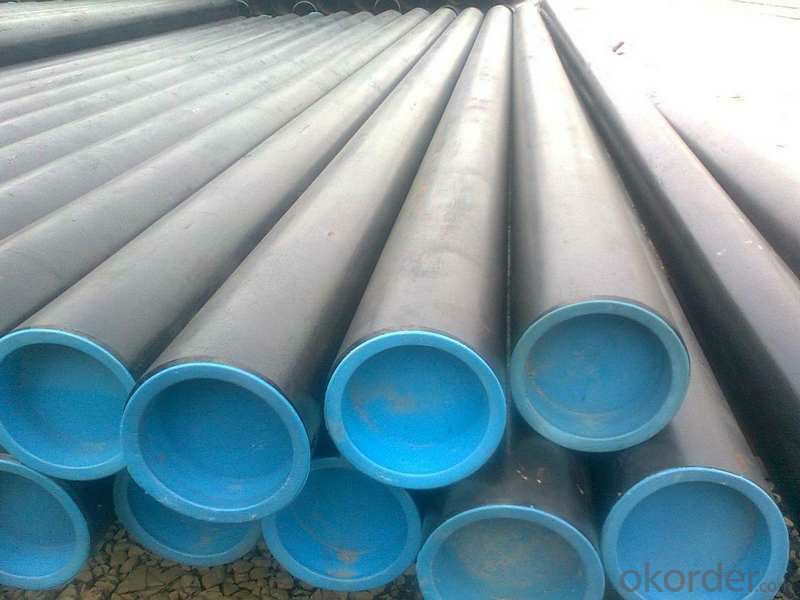
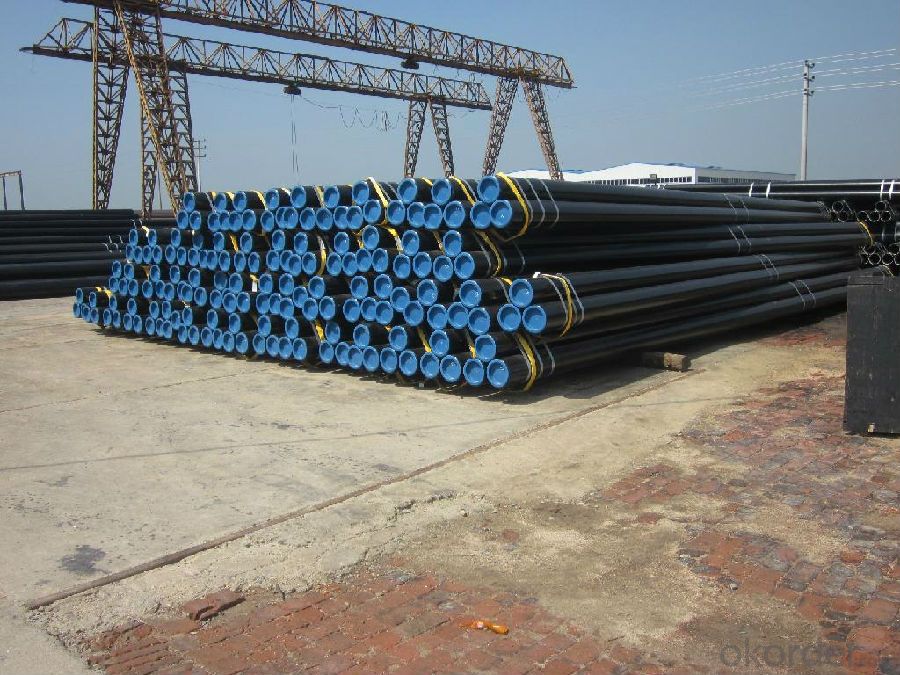
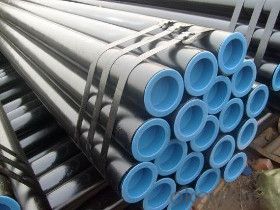
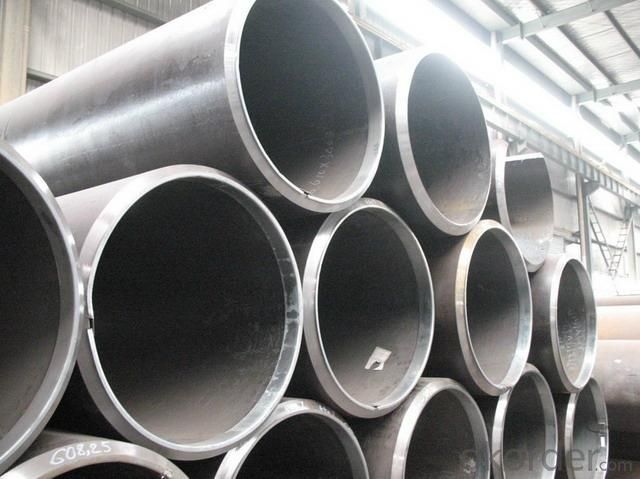
6.FAQ of Seamless steel pipe:
①How is the quality of your products?
Our products are manufactured strictly according to national and internaional standard, and we take a test
on every pipe before delivered out. If you want see our quality certifications and all kinds of testing report, please just ask us for it.
Guaranteed: If products’ quality don’t accord to discription as we give or the promise before you place order, we promise 100% refund.
②How about price?
Yes, we are factory and be able to give you lowest price below market one, and we have a policy that “ for saving time and absolutely honest business attitude, we quote as lowest as possible for any customer, and discount can be given according to quantity”,if you like bargain and factory price is not low enough as you think, just don’t waste your time.Please trust the quotation we would give you, it is professional one.
③Why should you chose us?
Chose happens because of quality, then price, We can give you both.Additionally, we can also offer professional products inquiry, products knowledge train(for agents), smooth goods delivery, exellent customer solution proposals.Our service formula: good quality+good price+good service=customer’s trust.
SGS test is available, customer inspection before shipping is welcome, third party inspection is no problem.
Any question, pls feel free to contact us !
- Q: What is the maximum length of steel pipes available?
- The maximum length of steel pipes available can vary depending on the manufacturer and specific application. However, steel pipes can typically be found in lengths ranging from 20 feet (6 meters) to 40 feet (12 meters) or even longer in some cases.
- Q: Can steel pipes be used for shipbuilding?
- Certainly, shipbuilding can make use of steel pipes. Steel is a widely employed material in ship construction owing to its robustness, endurance, and resistance to corrosion. Steel pipes serve multiple purposes in shipbuilding, encompassing the manufacture of the vessel's hull, superstructure, and various internal systems such as plumbing, ventilation, and fuel lines. The strength and structural integrity of steel pipes render them suitable for enduring the unforgiving conditions encountered at sea, including high pressures, extreme temperatures, and exposure to saltwater. Furthermore, steel pipes can be easily welded and shaped to meet the precise requirements of shipbuilding, making them an adaptable choice for this industry.
- Q: What is the difference between steel pipe and tubing?
- The main difference between steel pipe and tubing lies in their shape and size. Steel pipe is typically cylindrical in shape and has a larger diameter compared to tubing, which is generally produced in a variety of shapes, including round, square, and rectangular, with smaller diameters. Additionally, steel pipe is commonly used for transporting fluids and gases, while tubing is often utilized for structural applications or as components in mechanical systems.
- Q: Can steel pipes be used for transporting liquids and gases?
- Yes, steel pipes can be used for transporting liquids and gases. Steel pipes are commonly used in various industries, such as oil and gas, water supply, and chemical processing, due to their durability, strength, and resistance to corrosion. They are capable of safely and efficiently transporting a wide range of liquids and gases over long distances.
- Q: How are steel pipes used in the manufacturing of railways?
- Steel pipes are commonly used in the manufacturing of railways for various purposes. They are used for the construction of railway tracks, providing a strong and durable foundation. Steel pipes are also used in the manufacturing of railway bridges and tunnels, ensuring structural integrity and support. Additionally, steel pipes are utilized for the transportation of fluids and gases within the railway system, such as fuel or water.
- Q: How long are the seamless tubes? Are they six meters long?
- 6 meters of a root in general need to be customized, seamless tubes are mostly seven meters above the variable foot
- Q: Can steel pipes be used for gas transportation?
- Gas transportation can indeed employ steel pipes. Steel is frequently chosen as the material for gas pipelines due to its robustness, longevity, and resistance to corrosion. High pressures are withstood by steel pipes, rendering them suitable for conveying both natural gas and propane. Their ability to endure extreme temperatures further enhances their suitability for gas transportation across diverse settings. Moreover, steel pipes can be seamlessly welded together to create a continuous pipeline system. Nonetheless, it is crucial to guarantee that the steel pipes employed for gas transportation are adequately coated and shielded against corrosion to avert any leakage or pipeline harm.
- Q: Can steel pipes be used for pharmaceutical manufacturing?
- Yes, steel pipes can be used for pharmaceutical manufacturing. Steel pipes are commonly used in various industries, including pharmaceutical manufacturing, due to their durability, strength, and resistance to corrosion. In pharmaceutical manufacturing, steel pipes are primarily used for fluid transportation, such as the transfer of chemicals, solvents, and other raw materials. They are also used for the distribution of process water, steam, and other utilities. Stainless steel pipes are particularly preferred in pharmaceutical manufacturing as they are highly resistant to corrosion and can withstand high temperatures and pressures. Moreover, stainless steel pipes have smooth surfaces, which prevent the accumulation of particles and facilitate easy cleaning and sterilization, essential requirements in pharmaceutical production. Overall, steel pipes are a reliable and suitable option for pharmaceutical manufacturing due to their robustness, resistance to corrosion, and ability to meet the stringent cleanliness and hygiene standards of the industry.
- Q: How are steel pipes used in the manufacturing of food and beverage processing plants?
- Steel pipes are commonly used in the manufacturing of food and beverage processing plants due to their durability, cleanliness, and resistance to corrosion. These pipes are utilized for various purposes such as transporting liquids, gases, and ingredients within the plant. They are also essential for the distribution of water, steam, and other fluids required in the production and cleaning processes. Additionally, steel pipes are used for the installation of equipment, such as pumps and valves, ensuring a safe and efficient operation of the plant.
- Q: What are the different types of steel pipe supports for seismic applications?
- Some of the different types of steel pipe supports for seismic applications include sway braces, rigid braces, snubbers, and spring hangers.
Send your message to us
Steel Pipe With High Quality And Best Price
- Loading Port:
- Tianjin
- Payment Terms:
- TT OR LC
- Min Order Qty:
- 40 m.t.
- Supply Capability:
- 500 m.t./month
OKorder Service Pledge
OKorder Financial Service
Similar products
Hot products
Hot Searches
Related keywords
